
Lesbian, gay, bisexual, and transgender (LGBT) rights in Spain rank among the highest in the world, having undergone significant advancements within recent decades. Among ancient Romans in Spain, sexual interaction between men was viewed as commonplace, but a law against homosexuality was promulgated by Christian emperors Constantius II and Constans, and Roman moral norms underwent significant changes leading up to the 4th century. Laws against sodomy were later established during the legislative period. They were first repealed from the Spanish Code in 1822, but changed again along with societal attitudes towards homosexuality during the Spanish Civil War and Francisco Franco's regime.
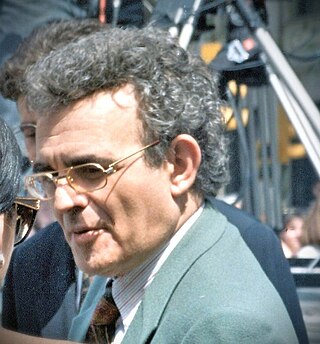
Terenci Moix was a Spanish writer, who wrote in the Spanish and in Catalan languages. He was the brother of poet/novelist Ana Maria Moix.
The Premio Planeta de Novela is a Spanish literary prize, awarded since 1952 by the Spanish publisher Grupo Planeta to an original unpublished novel written in Spanish. It is one of about 16 literary prizes given by Planeta.

Isabel Steva i Hernández, whose pseudonym was Colita, was a Spanish photographer. She trained with Xavier Miserachs i Ribalta, and began her professional career in 1961 as a laboratory technician and stylist for Miserachs.

Ana María Moix was a Spanish poet, novelist, short story writer, translator and editor. A member of the Novísimos, she was the younger sister of the writer, Terenci Moix.
This is a list of Spanish television related events in 1995.
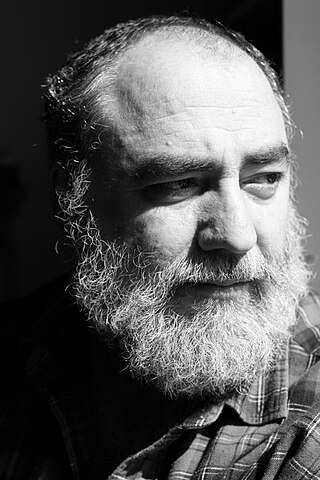
Javier Sáez del Álamo is a Spanish sociologist, translator, and gay rights activist, specialising in queer theory and psychoanalysis.

Natividad Isabel Preciado González, known as Nativel Preciado, is a Spanish journalist and writer.

Cándida Martínez López is a Spanish historian, university professor, expert in women's history and studies, and politician. From 2000 to 2008 she was Councilor of Education of the Regional Government of Andalusia, and from 2008 to 2011 a deputy of the 9th Legislature of Spain. She is co-director of Arenal, Journal of Women's History.

Agoney Hernández Morales, also known as Agoney, is a Spanish singer, composer and performer who rose to fame from his participation on the Operación Triunfo 2017 programme. Due to his great vocal potential and the versatility of his voice—and in reference to his home of the Canary Islands—he has been nicknamed "the Canary with the golden voice".
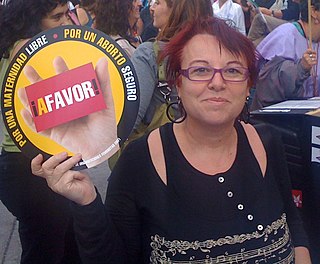
Montserrat Boix Piqué is a Spanish journalist, considered among the most influential women in her country. In early 2000, she created and developed the concepts of social cyberfeminism, and a year later those of feminist hacktivism. Another of her main areas of work is gender violence and communication. She has also stood out as a defender of the right to communication and citizenship rights for women. Since 1986, she has been a journalist for the Information Services of Televisión Española (TVE), in the international section.

Laura Nuño Gómez is a Spanish political scientist, researcher, and feminist activist. She is director of the Gender Studies Chair of the Institute of Public Law and the Gender Equality Observatory at King Juan Carlos University (URJC), as well as the creator of the first academic degree in Gender Studies in Spain, and of various postgraduate programs in this subject. She is the author of El mito del varón sustentador, as well as about 30 articles and books about her research. Since the enactment of the Law for Effective Equality of Women and Men, she has been one of the three expert members of the State Council for the Participation of Women.

Rosa Cobo Bedía is a Spanish feminist, writer, and professor of sociology of gender at the University of A Coruña. She is also the director of the Center for Gender Studies and Feminists at the same university. Her main line of research is feminist theory and the sociology of gender.
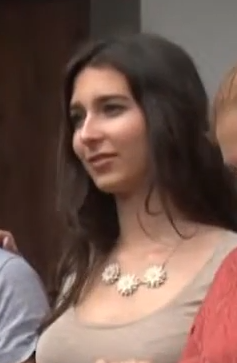
Lola Rodríguez Díaz is a Spanish actress, model, and LGBT rights activist.
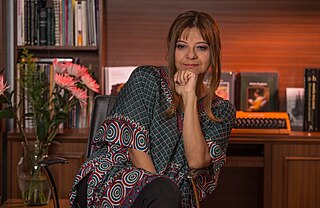
Isabel Agatón Santander is a Colombian poet, lawyer, writer and feminist. Promoter of the Rosa Elvira Cely Law which defines femicide as a crime in Colombia, she integrated the editorial commission of Law 1257 of 2008 about violence against women. She was a judge in the Tribunales de Conciencia de Justicia Para las Mujeres in Nicaragua (2015) and El Salvador in which they tried cases of sexual violence and femicide convened by the Red Feminista frente a la Violencia contra las Mujeres (REDFEM) and the Red contra Violencia of the respective countries.
Isabel Catalina Moya Richard was a Cuban journalist and feminist. Moya also taught communication studies at the University of Havana (UH) where she integrated feminist theory and advocated for inclusive journalism.

Valeria Martínez Zaragoza, known by her pseudonym Valeria Vegas, is a Spanish journalist, essayist, writer, documentary filmmaker and producer.

María Emma Mannarelli Cavagnari is a Peruvian feminist writer, historian, and professor. She is the founder and coordinator of the Gender Studies Program at the National University of San Marcos (UNMSM), where she also serves as director of the School of History and coordinator of the Master's in Gender and Development Studies.
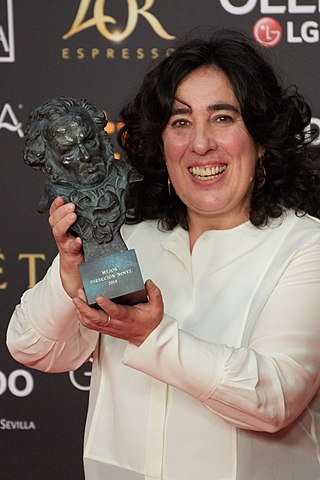
Arantxa Echevarría Carcedo is a Spanish filmmaker and television producer.

LGBT literature in Spain, that is, literature that deals explicitly and primarily with characters and issues within the LGBT+ spectrum, is linked to the progressive social acceptance of sexual diversity in Spain. A great surge of authors, publications, awards, bookstores, and publishing houses—such as Egales, the "first openly homosexual publishing house in Spain"—burst into the scene in the 1990s. In 1995, the Círculo de Bellas Artes itself in Madrid organized a series of 22 literary gatherings on this subject, which evidenced the flourishing of this type of literature.

















